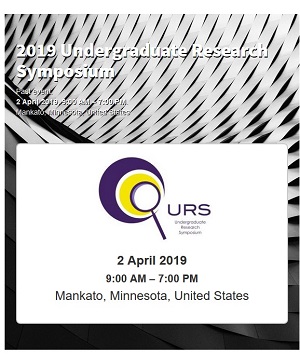Applying Peer-Tutoring to Spelling in an Elementary Classroom
Location
CSU Ballroom
Start Date
2-4-2019 2:00 PM
End Date
2-4-2019 3:30 PM
Student's Major
Psychology
Student's College
Social and Behavioral Sciences
Mentor's Name
Shawna Petersen-Brown
Mentor's Department
Psychology
Mentor's College
Social and Behavioral Sciences
Description
Technological advancements, such as spell-check, auto-correct, and predictive text, have contributed to a decreased emphasis on spelling in today's schools. However, it is important to remember that spelling supports the development of reading and writing skills. Spelling teaches and reinforces decoding and encoding, the skills required for reading and writing individual words using phonetic strategies. Despite the importance of acquiring spelling skills, few evidence-based spelling interventions exist (Reed, 2012). Peer tutoring has been defined as an instructional strategy that helps teachers individualize instruction, while providing students ample opportunity to be actively engaged during instruction. The benefits of peer tutoring include the ability to individualize instruction, increase active student engagement, and increase the extent to which students receive immediate feedback (Sideridis, et. al., 1997). Each of these features has the potential to enhance student learning. The purpose of this study is to examine if applying a peer tutoring intervention in a 3rd grade classroom will enhance spelling skills of elementary students compared to typical classroom spelling instructions. Results and implications of the study will be discussed.
Applying Peer-Tutoring to Spelling in an Elementary Classroom
CSU Ballroom
Technological advancements, such as spell-check, auto-correct, and predictive text, have contributed to a decreased emphasis on spelling in today's schools. However, it is important to remember that spelling supports the development of reading and writing skills. Spelling teaches and reinforces decoding and encoding, the skills required for reading and writing individual words using phonetic strategies. Despite the importance of acquiring spelling skills, few evidence-based spelling interventions exist (Reed, 2012). Peer tutoring has been defined as an instructional strategy that helps teachers individualize instruction, while providing students ample opportunity to be actively engaged during instruction. The benefits of peer tutoring include the ability to individualize instruction, increase active student engagement, and increase the extent to which students receive immediate feedback (Sideridis, et. al., 1997). Each of these features has the potential to enhance student learning. The purpose of this study is to examine if applying a peer tutoring intervention in a 3rd grade classroom will enhance spelling skills of elementary students compared to typical classroom spelling instructions. Results and implications of the study will be discussed.
Recommended Citation
Molnar, Alyssa and Nicholas Linell. "Applying Peer-Tutoring to Spelling in an Elementary Classroom." Undergraduate Research Symposium, Mankato, MN, April 2, 2019.
https://cornerstone.lib.mnsu.edu/urs/2019/poster-session-B/9




